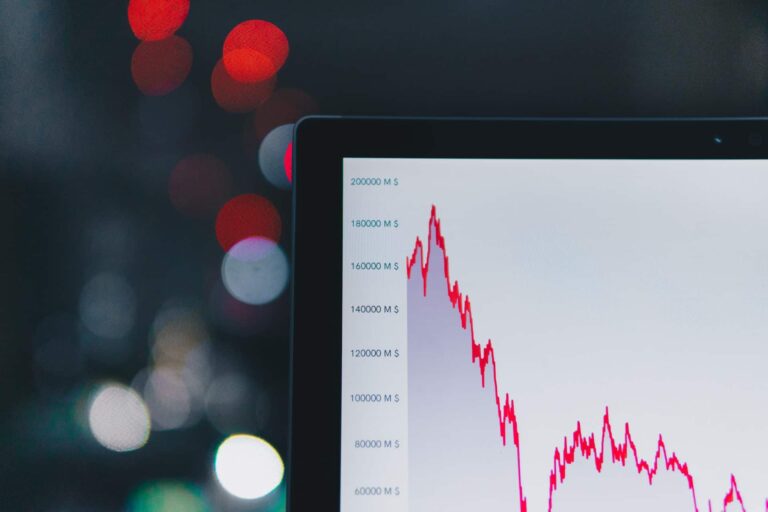Derivatives markets otherwise known as financial markets are where investors trade their financial resources which are stock exchanges for financial products whose value is determined from an underlying asset or collection of assets. These assets may consist of securities such as stocks, bonds, money, commodities, and other financial instruments.
Investors can buy or sell a variety of financial contracts, including futures, options, swaps, and forwards, in the derivatives market. These contracts give investors the option to hedge their exposure to price volatility or to bet on the future price movements of the underlying asset.
Table of Contents
What are derivatives
Derivatives are financial products that get their value from some other asset or collection of assets. These assets may include securities such as stocks and bonds, as well as commodities, money, and interest rates. Derivatives are widely used by financial institutions and investors to manage risk, hedge against potential losses, and speculate on future market movements.
It’s vital to keep in mind that when businesses hedge, they are not making wagers on the cost of the product. The hedge merely provides a risk management strategy for each party. Each party’s profit or margin is factored into the cost, and the hedge works to prevent those gains from being lost due to fluctuations in the commodity’s price. The underlying assets’ values occasionally fluctuate.
For instance, indices can change, stock prices can go up or down, the value of a set of currencies can change, and the price of commodities can go up or down. A shareholder can still profit from these developments. Although, they might also cause losses.
Derivatives could also serve as a safety net against deficits in the spot market, where the actual assets are exchanged, or they could help you make higher profits by accurately predicting the future price.
Types of derivatives
There are various derivative varieties, each with special qualities and applications. The most common types are futures contracts, forward contracts, options, and swaps.
1. Futures contracts
Futures contracts are partnerships involving two parties to purchase or sell a fundamental asset at a specified price on a given date in the future. These contracts are standard ones, meaning that the price, quantity, and delivery date are specified in advance. Futures contracts are used by farmers, miners, and other producers to lock in prices for their products, as well as by investors to speculate on future price movements.
2. Forward contract
Despite not trading on an exchange, forward contracts, often known as forwards, are comparable to futures. The only way to exchange these contracts is over-the-counter. The terms, size, and payout procedure can all be altered when a forward agreement is created by the buyer and seller. Forward contracts have more counterparty risk for the parties involved than other products because they are OTC.
In that the parties might not be able to uphold the responsibilities stipulated in the contract, counterparty risks are a sort of credit risk. If one party experiences financial difficulty, the other party can have no options and risk losing the value of its stake. Forward contracts are common in the foreign exchange market.
3. Options
When it comes to options, it gives the holder the right, but not the obligation, to buy or sell an underlying asset at a predetermined price on or before a specific date in the future. Options are more flexible than futures contracts. This is because they give the holder the right to choose whether to exercise the option or not. Options are used by investors to hedge against potential losses or to speculate on future price movements.
4. Swaps
Swaps are arrangements for the trading of cash flows between two parties under a predetermined set of terms. The most common type of swap is an interest rate swap. In which two parties exchange fixed and floating-rate payments based on a predetermined notional amount. Swaps are used by financial institutions to manage interest rate risk, currency risk, and credit risk.
Swaps can well be created to trade cash flows from other company operations, loan default risk, and currency exchange rate risk. A very common type of derivative is one that deals with the cash flows and probable defaults of mortgage bonds.
Read also: Behavioral finance, what is it in five key points
Who are the participants in the derivatives markets?
The four following groupings can roughly describe the participants in the derivatives market:
- hedgers: These are the participants who use the derivatives market to manage their risk exposure. For example, a company that exposed to foreign currency risk might use currency futures contracts to hedge against adverse movements in exchange rates;
- speculators: These are the participants who enter into derivatives contracts with the hope of making a profit. For example, an individual trader might buy an options contract on a particular stock with the expectation that the stock price will rise. Thus allowing them to profit from the price difference;
- arbitrageurs: In the financial markets, arbitrage is a fairly common activit. It makes use of asset mispricings to generate risk-free returns;
- margin traders: These use margins to indicate gains and losses on a daily basis following market changes. It makes it possible to hold a sizable open position while obtaining leverage in derivative trades.
Marker derivatives are not without setbacks
Utilizing derivatives can be a highly practical strategy to reach financial objectives. however, not without its limitations
The key drawbacks of derivatives are counterparty risk, the potential hazards of leverage, and the possibility of systemic problems brought on by intricate webs of derivative contracts.
Read also: The major financial capitals in the world in 2023












